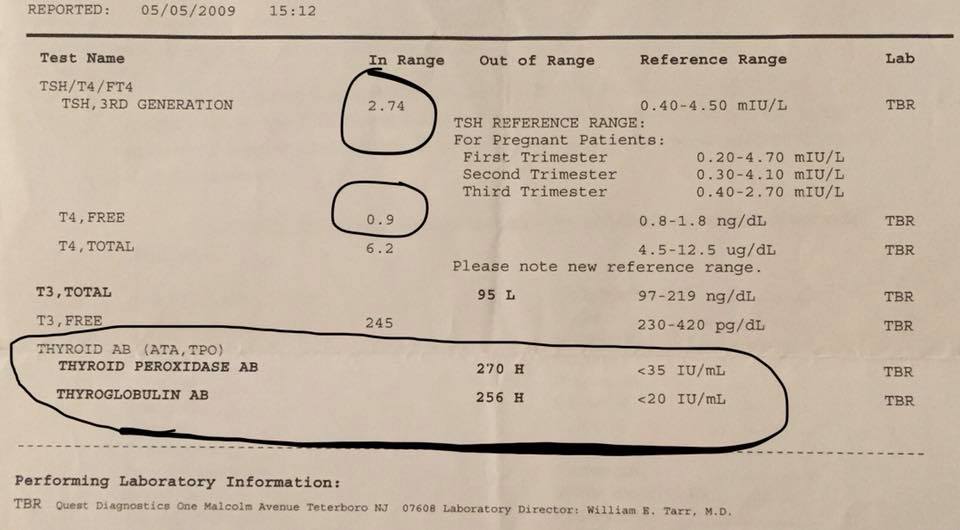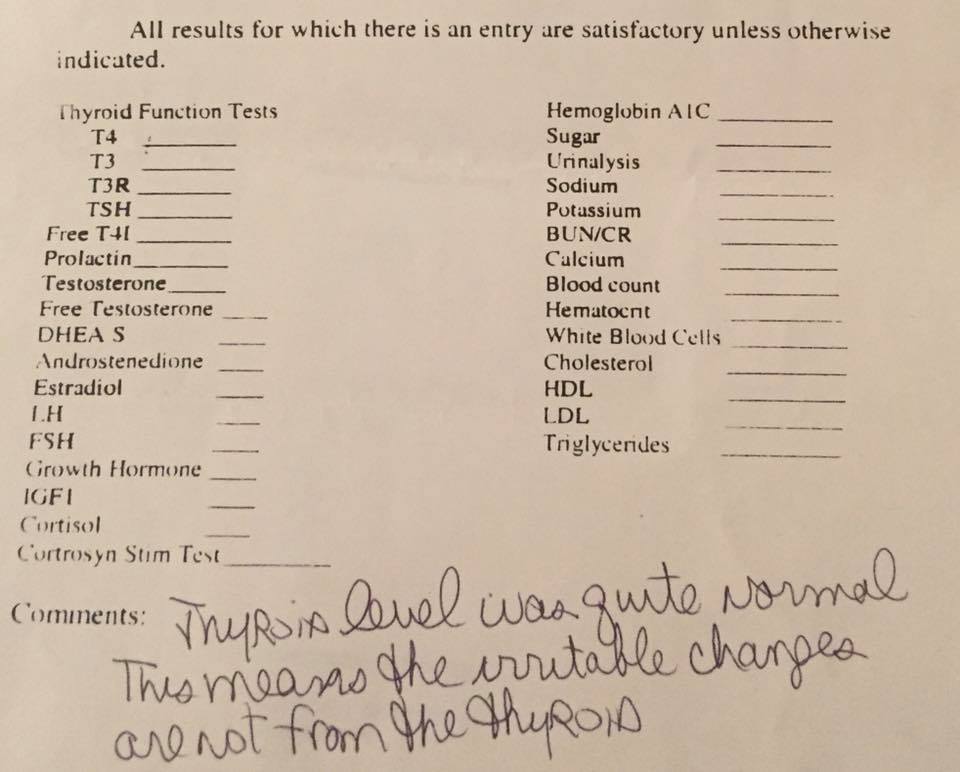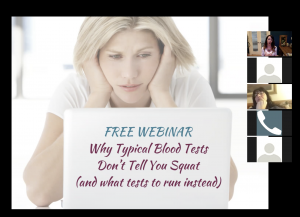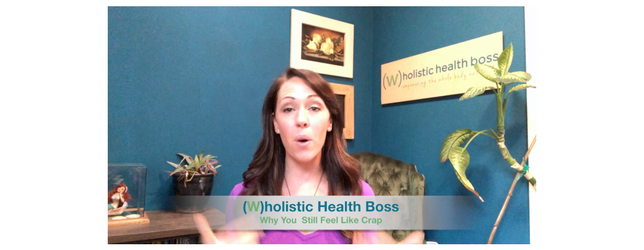How much are you worth?

If you had to put a price on your head, how much would you be worth? Hundreds, thousands, millions or billions of dollars?
What are all of the things that you bring to the table in your relationships, family and work?
What do you value spending your money on? Your daily coffee to get you going in the morning, a weekly or monthly housekeeper to keep you sane, travel, quality clothing that is comfortable and doesn’t fall apart in the washer, organic food, massages for relaxation, phone apps to make your life more efficient?
What about your health? How much is that worth?
For the longest time I thought I valued my health because I was “doing all of the right things.” I was “eating healthy”, meaning I was mainly choosing veggies, meat and occasionally indulging in a treat. I was lifting weights, doing yoga and/or cardio daily. I was taking high quality supplements to give my body extra nutritional support. And I was seeing a chiropractor, acupuncturist or massage therapist at least once every 2 months to tune up my body.
It wasn’t until I faced mold illness, estrogen dominance and was diagnosed with Hashimoto’s that I realized how much I hadn’t been valuing myself and my body.
Looking back now I can see the signs my body was giving me for over two years- how it was trying to tell me that something wasn’t right, and how I chose to ignore them because I had “more important” things to do or because I “didn’t have time.”
Not valuing ourselves is at the core of almost every health issue I see.
With every client I’ve worked with or person I’ve spoken to about their health issues, there is always one common characteristic or behavior…a tendency to put others or everything else before self.
Here are some of the common ways this shows up…
- Don’t have time to cook = making everything else a priority over cooking
- Not exercising = not making time/not willing to invest in accountability (i.e. personal trainer)
- Going to bed late = not setting healthy boundaries to support an early bedtime
- Working long hours = won’t delegate, fear of asking for help and being seen as less than
- Feeling really stressed out = not making time to de-stress and resisting spending money to relax
We make time and we find the money for what is important to us. If your car broke down and you needed to get somewhere, you would find the money to fix it. We all have the same 24 hours in a day, but how we choose to use those hours is what can make all the difference in your health.
A few years ago when I started reiki training my teacher told me I had to meditate for 30 minutes 21 days in a row. My initial reaction was, “I don’t have time to meditate for 30 minutes every day! I barely have time to relax and watch TV at night with my husband.” But I never turn down a challenge, and if I wanted to learn reiki, making time to meditate was part of the deal.
I carved out 30 minutes to meditate one day at a time, and before I knew it 21 days had passed. Over time I fell in love with the positive impacts meditation had on my body so much that now I meditate for 30 minutes twice a day at least 5 days a week!
How did I find time to do this when I originally felt like there wasn’t enough time in my day? I decided I was worth it, that my post meditation bliss and my health was more rewarding and more important than some of the other things I was spending my time on. I let go of having to tidy up the house at night, decided to get up a little bit earlier and let my husband know how important meditation was to me so we could find other time to spend with each other.
It’s not our fault that we have evolved to not prioritize ourselves or see our self worth. Somewhere along the line taking time for ourselves, voicing our needs, standing up for what we wanted or needed, and making ourselves a priority became shamed upon or seen as selfish.
But embracing your self worth, making your health and self a priority is far from selfish, it’s essential to your survival.
If you don’t take care of yourself, who will?
Your kids or your family? Is that a fair burden to leave them with when you have all the power right now to ensure a better quality of life as you age?
In this week’s video and blog I share more about how I wasn’t valuing myself, how Hashimoto’s humbled me and 3 ways you can start owning your self worth now to better support your health.
When I was diagnosed with Hashimoto’s I was faced with having to re-evaluate my lifestyle to see how it was or wasn’t supporting my health in order to try and figure out 1) how I landed here and 2) how could I recover from this.
Although I was “doing all of the right things”, or at least I thought I was, it wasn’t enough or exactly what my body needed. I couldn’t just keep doing the same thing over and over again expecting a different outcome for my health.
It was a humbling experience, to say the least. It forced me to look deep within and see where I was still not putting myself first, not valuing what I was worth.
A recent passage I read in one of my spiritual books describes to a tee what I was faced with and what most of my clients are faced with in regards to making health a priority…
“Awakening begins with noticing more of what you normally ignore. The process of denial happens so quickly that it is difficult to interrupt it at first. It is that imperceptible flash of feeling you override with a more acceptable thought, the burst of inspiration you judge to be foolish, the presence of greatness your unworthiness will not allow you to receive and the true feeling of dislike that guilt shames you to nullify. The mind would have you believe that awakening comes from what you know, but this is not a journey through the mind.”
There were plenty of moments leading up to my diagnosis when I could sense that something wasn’t right in my body: I started putting on weight, I wasn’t recovering from my workouts well, I didn’t have the same energy or endurance, I started grinding my teeth, had occasional ear ringing and I had acne for the first time in my life, just to name a few of the signs.
But I kept pushing it off telling myself I would do something about it “soon” (ignoring it), judging myself for not exercising hard enough and thinking I must just be out of shape, and resisting spending the money to seek help or to actually run some tests to take a look at what was going on.
Before I knew it, two years had flown by. I had gained 15 pounds, had some severe hormonal issues going on and I didn’t feel anything like myself in my body.
Over time, if we keep giving ourselves the short end of the stick, it will eventually catch up to us until one day you look in the mirror and wonder “how the heck did I get here.”
Luckily for me, it wasn’t too late and my health issue wasn’t critical. I caught my Hashimoto’s early and was able to reverse it quickly. I honored that I needed to modify my diet, even though it meant eating different than everyone else. I made even more time to meditate to allow my body to heal. I set my ego aside and turned down the intensity of my exercise. I embraced the fact that I had to take even more supplements for a period of time to support my body’s healing process. And I accepted I need to spend money on me to get me back to where I wanted to be.
Had I owned my self worth sooner, made time for myself, and paid attention to what my body was trying to tell me, maybe I would have never landed myself in such a pickle in the first place.
Don’t wait until you’re faced with a health crisis to value yourself.
It’s the little things we do each day that either add or subtract value to our self worth. Think of it like your bank account. If you’re constantly withdrawing money for very time you give to others or your work, for every instance you eat something that isn’t right for you because you didn’t make time to cook or plan ahead, for every night you stayed up burning the midnight oil or for every workout you forced yourself to do even when you were tired, you would find yourself quickly in debt.
We have to deposit money into our body bank account just as much, if not more than we withdraw it.
So how can you start depositing more than you’re withdrawing to build your value and self worth?
Any time you give back to yourself, communicate your needs and take action to make yourself more of a priority, you build your value. It might be uncomfortable at first, but with each value-building action you take your confidence to keep taking action will grow.
Here are 3 simple ways you can start to reclaim and build value in your self worth to support your health…
#1- Do 1 Thing A Day
Doing just one thing a day for yourself, and no one else, is one of the simplest and easiest steps you can take towards embracing your self worth. This can be as simple as taking a bubble bath, stepping outside for a break at work or making 5 minutes to meditate. You’ll find that you’ll gravitate to it more often when you consistently do it through the power of positive reinforcement and reward.
#2- Hire help
You can’t do it all alone. Everyone needs help. Often times when my clients run up against excuses about not having time or knowledge to achieve what they want I ask them, “what resources or support do you need to make it happen?” Do you need to hire a housekeeper to free up some time, a personal trainer or health coach for accountability and guidance or a food delivery service to take the work out of it. I have come to know that my time is worth money. If I have to pay someone to do a job I can do myself just to get a moment of peace and relaxation, it’s totally worth it!
#3- Schedule An Escape
Your work vacation benefits are meant to be used. That’s why you have them. And if you work for yourself, there’s no excuse to not use them. This is such a common area where people downplay the value of themselves while making work more of a priority. Whether it’s a half day, a long weekend or several weeks, this is one of the best ways that you can invest in yourself by immersing in nature and/or by simply disconnecting from the monotony of your typical day. When you schedule an escape, you will emerge more energize and rejuvenated. You deserve a damn vacation.
We tend to lean on so much science when it comes to our health: eat this not that, exercise this way, take these supplements etc. But the way we are acting, the way we are being and how we are treating ourselves play just as much a role in the outcomes of our health as what we put in and on our body. Valuing yourself creates a positive impact on a cellular level that boosts your health.
Don’t wait until it’s too late, until you’re faced with a fork in the road or a health crisis. Start depositing money in your body bank today and building your health 401K for the future.
As a Functional Health Practitioner and coach, I not only use lab testing, diet, rest, exercise, supplements and stress reduction techniques to help my clients achieve their results, but I also infuse transformational coaching methods to help them embrace healthy as a way of being.
If you’re looking for guidance on how to improve your health and you’re ready to invest in your health and yourself, then schedule a complimentary Ideal Health & Weight Discovery Session here today!.
#TBT Are you aware of your thyroid?

As a person who has been thriving with a thyroid disorder (Hashimoto’s) for over a year now, I couldn’t help but bring this one back today in honor of Thyroid Awareness Month.
Thyroid dysfunction is one of the number one health issues I see overlooked with the clients I work with and in my Health Boss tribe. The symptoms are sneaky and often appear to be something else, which is why most health professionals miss it.
However, thyroid conditions are also some of the most easily reversible if you heal your gut, support liver function, eat the right food, get good sleep, minimize toxic exposures and overall adopt a more holistic lifestyle approach.
Check out this week’s #TBT blog post below to get clued in on your thyroid health and how to best support it. Or jump on over to my Facebook Page to check out my recent live video on thyroid health.
***
January is Thyroid Awareness Month! I wonder, how aware of your thyroid are you?
Do you know how hard your thyroid works for you on a daily basis and what it needs to function at its best? My guess is that you might be somewhat aware of what the thyroid does, but knowing more about this hard working gland could completely change your life and your health.
Your thyroid gland is kind of a big deal. Just look at all the important things it does for you:
- Plays a role in all functions in the body including all organs and systems
- Regulates energy availability, body temperature and hair growth
- Assists with wound healing and recovery from exercise
- Controls the metabolic rate of the of the systems in control of your health
According to the American Thyroid Association an estimated 20 million Americans have some sort of thyroid disorder, up to 60% of those people are unaware of it, and women are 5 to 8 times more likely to develop a thyroid disorder than men.
Some of the most common signs of less than optimal thyroid function include:
- Bouts of constipation
- Dry skin and/or eyes
- Depression and/or anxiety
- Prone to infections
- Fatigue not relieved by sleep
- Hair loss or an increase in facial hair
- Cold all the time when others are not
- Thinning eyebrows, especially the outer 3rd portion
- Unexplained weight gain or inability to lose weight
Chances are, if your doctor has tested your thyroid it was likely tested all wrong.
Unfortunately most conventional or western medicine doctors only test Thyroid Stimulating Hormone (aka TSH) when they are evaluating thyroid function.
What’s wrong about testing TSH? It sounds like the right thing to test, right?
TSH is actually a marker for pituitary gland function, not the thyroid.
Think of the pituitary gland as being the VP of operations, your hypothalamus gland as the CEO, and the thyroid is the director of operations.
The hypothalamus receives information and directs the pituitary on what needs to happen. The pituitary hands down the information to the thyroid via TSH hormone and the thyroid gets to work initiating the operations.
To truly evaluate thyroid function you need to test the actual hormones that the thyroid produces and uses to initiate its operations such as: total T4, total T3, free T4, free T3, and even reverse T3 in some cases.
In this week’s video and blog I dive into more detail about how important your thyroid is and how to make sure it’s running optimally to support your best health.
Knowing that your thyroid is involved in all functions of the body means it is pretty important, right?
Of course! We need this mighty little gland to be working at its best in order for the rest of the body to function at its best!
For your thyroid to carry out the order of operations, as directed by the hypothalamus and pituitary, it needs the right tools (aka nutrients) to do so.
The most critical nutrients for thyroid function include:
- Iodine
- Selenium
- Zinc
- Iron
- Omega 3 fatty acids
- Vitamin D, A and a variety of B’s
- Protein – to specifically get the amino acid tyrosine
In order to get adequate amounts of these nutrients for your thyroid 3 things need to happen:
- You have to eat foods high in good quality nutrients (go organic!)
- Take supplements to support what you can’t get in your food
- Have a healthy gut that allows optimal nutrient absorption
Having a healthy gut is where I see the most missed healing opportunities for a healthy thyroid.
You could be eating the healthiest foods in the world and taking a variety of supplements BUT still be suffering from suboptimal thyroid function. You aren’t getting the most bang for your buck with what you’re putting in your mouth if you have a leaky or unhealthy gut.
Your gut is where all nutrients are absorbed and made available for use in the body.
Checking your gut health is SO IMPORTANT if you have any kind of thyroid imbalance or disorder to make sure your thyroid has all the nutrients and support it needs to do its job well.
To help you assess your gut health and support your thyroid function better, or to help resolve any other health issue you might be dealing with, I’ve designed a special and affordable In-Depth Gut Health Test Package!
With this Gut Test offer you’ll be able to take a deep dive look at your gut health. This test will have all of the critical markers to truly evaluate your gut function and leaky gut including:
- Intestinal Parasites
- Bacteria Overgrowth
- Candida and Other Yeast Infections
- Immune and Inflammatory Markers SigA and Calprotectin
- Degree of Gluten Sensitivity
Along with the test, you’ll also get to meet with me via phone or video call for an in-depth 90-minute results review session to go over your results and my personalized recommendations for you in regards to diet, sleep, exercise, stress reduction and supplements to improve or maintain your thyroid health!
You and your health are worth investing in. Take an empowered step towards realizing your full health potential by checking your gut, thyroid and adrenal health!
Test, don’t guess! Check out these new Special Packages designed just for you!
P.S. Know someone else who is suffering from suboptimal thyroid function and struggling to get it back in balance? Feel free forward them this email so they can unlock answers to their thyroid health like so many others who have worked with me.
Why Typical Blood Tests Don’t Tell You Squat

I received one of the most disturbing messages from a client less than 48 hours before I went live with my webinar Why Typical Blood Tests Don’t Tell You Squat (and what tests to run instead)
This client, we’ll call her Sarah to conceal her identity, started working with me in December of 2015 after participating in one of my Seasonal Cleanse challenges. She was attracted to the Cleanse Challenge for its promise to boost energy, get rid of belly bloat, a flat stomach and an overall improvement in health.
Sarah enjoyed the cleanse challenge and saw some results but it was obvious she needed more help, which is how we came to work together.
We ran some tests, identified some healing opportunities within her hormones and digestive system, got her started on the right diet for her body and some supplements to support the body’s healing process. Within a matter of weeks, she was feeling great!
For months after starting our work together Sarah saw significant improvements in
how she felt and looked. Her anxiety dwindled down to almost nothing, her energy was up, she felt better in her body and her digestion was on point.
After about a year of being on her health re-building program, she hit a wall with her results and almost started going backwards.
I encouraged her to run a full thyroid panel for clues and that’s when she was diagnosed with Hashimoto’s.
Since then, Sarah and I have continued our work together to help her manage her Hashimoto’s with a holistic lifestyle approach, which included redefining her diet to support the healing process, changing up her supplements, taking more time for herself and working to eliminate toxins that disrupt thyroid function.
Part of Sarah’s health re-building plan also included following her dreams to leave New York City for the West coast or some area that better supports her health.
As she was getting ready for her upcoming move to the west coast in February and going through old paperwork, she came across this doctor’s report from 2009…


Back in 2009 Sarah clearly had Hashimoto’s that was overlooked. Her thyroid antibodies were well over 200 and even marked as “high” according to the traditional conventional lab references ranges.
Her TSH was high when compared to the optimal/functional range of 05.-2.0 and her Free T4 was on the lower side of the conventional range and the optimal/functional range.
Her health practitioner completely dismissed her thyroid results, even though Sarah was symptomatic and even noted “Thyroid level was quite normal. This means the irritable changes are not from the thyroid.”
Had Sarah received a proper interpretation of her test results or been more well informed to advocate for herself, she quite possibly could have reversed her Hashimoto’s 8 years ago. I can’t even begin to image how much different her life would be today. She could have been living a high energy, flat stomach and symptom-free life for the past 8 years, had she known better.
This is the perfect example of why I just hosted the webinar Why Typical Blood Tests Don’t Tell You Squat (and what tests to run instead) and why I’m sharing the recording with you.

It’s time to put a stop to this confusion and to become educated about what your lab tests are really saying or to figure out the right labs to run so you can become your own advocate and take back control of your health.
Access the webinar replay here!
In this webinar I uncovered these truths about lab tests as it relates to your health:
- How blood and saliva tests don’t tell the full story about your hormones and what health secrets are hiding in your urine
- What’s wrong with lab reference ranges, how they could be lying about your health and what optimal ranges look like
- How markers on a comprehensive blood panel all give you clues about your gut health
- Why you should be running functional (not conventional) lab tests to find the missing pieces to your health puzzle
It is possible for you to have better energy, mental clarity, clear skin, a flat stomach and/or to feel good in your body again. You just need the right lab tests and resources to give you the right clues so you can find the missing pieces to your health puzzle and get back to feeling like yourself again (or for the first time!).
[My Rant] How many doctors does it take to get healthy?

I know someone who went to over 30 doctors and specialists before he finally started feeling better. Funny thing though, not one of those doctors is the reason why he finally started getting better; his turning point was when he took his health into his own hands.
He did his research, educated himself and got his hands on the right lab tests and resources to find the missing pieces to his health puzzle.
This is a perfect example of why I’m hosting the free webinar “Why Typical Blood Tests Don’t Tell You Squat (and what tests to run instead)” on January 16th at 5pm PT/8pm ET Register for the webinar here.
I left the gym life as a personal trainer and general manager back in 2009 because I could see how diet and exercise alone were failing to help people achieve a better state of health.
I then got into Corporate Wellness because I thought I could have a bigger impact with employee populations using a broader approach. But over time I morally started to have a conflict with that, too. We were preaching the standard government recommendations for food and health to people and they weren’t getting healthier.
I became (and still am) so sick and tired of people placing government regulated health standards and doctors on a pedestal- taking their word as the word of God when it comes to health and watching it not work.
You are the one who holds all of the answers to your health in your body.
In 2013, I became a Functional Diagnostic Nutrition Practitioner and started working with people one-on-one so I could help them get their hands on the right lab tests and resources to find the missing pieces to their health so they could finally start feeling like themselves again (or for the first time ever).
I help my clients do 3 simple things that most health practitioners don’t:
- Understand what foods are right for their body so it can function at its optimal potential
- Uncover hidden healing opportunities within the hormone, immune, digestion, detoxification, energy and nervous systems using functional lab testing
- Learn how to connect with their body at any given time so they can give it exactly what it needs to feel their best
None of this is rocket science. It’s simply getting back to the basic principles of health.
Most doctors or health practitioners are selling us solutions that are not in our best interest, but in theirs (because of the money they make off of the pharmaceuticals or solutions they sell). You don’t make money off of recommending dietary changes, more sleep or reductions for stress, so why would they do that, right?
But I’m also tired of seeing people accept less than they deserve when it comes to their health and well being – accepting that “this is just the way it is” or the concept of getting old and therefore my health will naturally decline.
I can’t even begin to tell you how many clients I’ve worked with who were told to ignore their symptoms, that they were fine, or that nothing could be done or found when they obviously didn’t feel like themselves.
Many of these clients had no idea they had underlying hormone imbalances, autoimmune conditions, issues with digestion or infections. All they knew was that they felt tired all the time, had suddenly put on weight they couldn’t get rid of, felt like they were in a constant state of brain fog, were battling bouts of depression or mood swings, and overall just didn’t feel like themselves.
One client came to me with thyroid antibody levels at 425- anything over 10 is when thyroid autoimmunity can be clinically diagnosed. Her doctor just wanted to “keep an eye” on it and gave her zero recommendations on how to bring them down even though she was suffering with digestive issues, brain fog, weight gain, dry skin and mouth amongst other symptoms that correlated with Hashimoto’s. After a few short weeks of implementing the lifestyle changes I suggested, her energy was up, she was thinking more clearly and bloat free.
Another client who came to me was only able to eat 6 foods. Could you imagine living life only being able to eat 6 things??? After a battery of tests and doctors she still was left without an answer. It wasn’t until we started working together and under my guidance did she finally get her doctors to run the right tests, she was diagnosed with Celiac’s disease and within 6 weeks was eating up to 23 different foods.
Conventional doctors aren’t the only ones who are missing the mark. I’ve seen plenty of clients who have previously worked with other health professionals who are falling short too.
One such client had been suffering for over a year with extreme fatigue. She practically quit working and sought out a naturopathic doctor who treated her for adrenal dysfunction and food sensitivities but never checked her digestive or thyroid health even though her sister had a thyroid autoimmune condition. To no avail, the treatments fell short. She eventually landed with me and we ran the right tests. Lo and behold, she had a plethora of gut bugs, her thyroid antibodies for autoimmunity were through the roof and she was living in a house with mold! After just 2 months, her thyroid antibodies were back down to healthy ranges.
It’s absolute BS how the media, certain health practitioners, marketing and so called “health” products companies have preyed on all of us after we have been beaten down, told we don’t know anything about our health or it’s “too complicated” for us to understand.
In this week’s video and blog I’m going to make figuring out what’s going on with your health so simple that a monkey could figure it out for you.
The reality is that your health is really simple.
When we focus on fulfilling our body’s basic needs with adequate food, sleep, exercise, the right nutrients and reducing stress, we can heal ourselves.
There is no such thing as “one thing” that is going to fix your health or get you back in touch with yourself. Having your best health and feeling like yourself requires work in multiple areas of your body and life.
However, we do need to take ownership in advocating for ourselves, in how we have treated our bodies, and in acknowledging what needs to change.
You can’t keep doing the same thing over again and expect a different result.
You don’t need to diet harder or exercise more. In fact in some cases you need to exercise less. There is no magic pill or supplement that will “fix it all.”
In two words, I can tell you want is wrong with your health:
- STRESS
- INFLAMMATION
Symptoms such as…
- Headaches, fatigue or low energy
- Gas, bloating, constipation and diarrhea
- Anxiety, depression, ADD/ADHD or mood swings
- Ovarian cysts, thyroid or hormone imbalances
- High blood pressure or cholesterol
- Weight gain or inability to lose weight
- Joint and/or muscle pain
- Autoimmune conditions
- Acid reflux or GERD
- Skin rashes, acne, eczema or psoriasis
- Period pain, cramps, hot flashes and night sweats
- Congestion, allergies, sinus issues
- And restless sleep
All of these are symptoms of stress. The stress has created some kind of metabolic chaos which leads to inflammation and dysfunction in the bodily systems which are then producing the symptom(s) you’re experiencing.
If you want to reverse the dysfunction, you simply need to do two things:
- Identify what is stressing the body and remove it
- Reduce inflammation
In order to see the big picture of stress, inflammation, and metabolic chaos that is occuring in the body, you need to run the right lab tests and/or they need to be interpreted from a functional viewpoint to help you connect all the dots.
For example, a high triglyceride ratio is a good marker for insulin resistance which points carbohydrates and sugars as being stress culprits. Or another example is when certain red blood cell components are elevated, it’s a sign of intestinal parasites and these guys can cause all kinds of chaos and stress internally!
It’s time to put a stop to this confusion and to become educated about what your lab tests are really saying or to figure out the right labs to run so you can become your own advocate and take back control of your health.
Join me, January 16th at 5pm PT/8pm ET for a free webinar:
Why Typical Blood Tests Don’t Tell You Squat (and what tests to run instead).
In this webinar I’ll uncover these truths about lab tests as it relates to your health:
- How blood and saliva tests don’t tell the full story about your hormones and what health secrets are hiding in your urine
- What’s wrong with lab reference ranges, how they could be lying about your health and what optimal ranges look like
- How markers on a comprehensive blood panel all give you clues about your gut health
- Why you should be running functional (not conventional) lab tests to find the missing pieces to your health puzzle
Register for the webinar here.
You don’t have to see over 30 doctors or health practitioners to get to where you want to be. It is possible for you to have better energy, mental clarity, clear skin, a flat stomach, to feel good in your body again and be in control of your health.
Learn about the right lab tests and resources to give you the clues so you you need to find the missing pieces to your health puzzle so you can get back to feeling like yourself again (or for the first time!).
Join me, January 16th at 5pm PT/8pm ET for a free webinar:
Why Typical Blood Tests Don’t Tell You Squat (and what tests to run instead).
3 Reasons why you look good on paper, but feel like crap

For the longest time I was the picture of perfect health, according to my doctor and most people. My health markers looked great on paper: cholesterol, blood pressure, glucose, triglycerides, etc. But for some reason, I still felt like crap.
I struggled to maintain my weight, even though I exercised and watched what I ate
My mind wasn’t sharp. It was like I was in a fog most of the time
I could hardly keep my eyes open in the afternoon, even after a double Americano
It seemed like everything I ate left me feeling bloated or puffy in the face
My emotions were like a roller coaster that I couldn’t get off
But my doctor couldn’t find anything wrong with me.
My paper game was on point, though. Not only did I have “excellent” health markers but my career was on fire. I landed my dream job straight out of college and quickly climbed the professional ladder. Before I knew it, I was 24 years old,managing a multi-million dollar facility and practically making 6-figures.
I had it all, but something just didn’t feel right. I didn’t feel like myself.
This is exactly where most of my clients are when they come to me, too- successful in life, but not so much in how they feel or in their health. How much of this can you also relate to?
You’ve been through the mill of health professionals in search of that magic thing that is going to turn back the hands of time and help you feel energized, sharp, strong, alive, pain-free and like yourself again (or for the first time).
You look great on paper professionally and medically, but you still feel like crap.
You’ve let your success guide you in life, only to wake up day after day feeling like something is missing but you can’t quite put your finger on it. You start noticing how your body doesn’t seem to respond in the same ways it used to. You get down on yourself for feeling tired, unable to manage your weight, and weak mentally and/or physically.
You chalk it up to “just getting old,” but secretly you wish that wasn’t the case so you keep searching for solutions. All the searching, agonizing and money spending starts to make you crazy.
Let me tell you, you’re not crazy!
I am so sick and tired of hearing how doctors and health professions are telling people they look like the picture of perfect health on paper when they feel like crap.
Symptoms such as…
Headaches
Fatigue or low energy
Gas and bloating
Mood swings
Anxiety and depression
ADD/ADHD
Ovarian cysts
Thyroid or hormone imbalances
High blood pressure or cholesterol
Restless sleep
Weight gain or inability to lose weight
Joint and/or muscle pain
Autoimmune conditions
Acid reflux or GERD
Skin rashes, acne, eczema or psoriasis
Hot flashes and night sweats
Congestion, allergies, sinus issues
Constipation and diarrhea
Are all common, but they are NOT normal!!!
And don’t give me that BS about genetics. Your genes only determine about 20% of your health, the rest is all based on lifestyle choices. So just because your parents, grandparents, sisters, brothers, aunts, uncles or whoever else in your family suffered from some health ailment, doesn’t mean you have to.
In this week’s video, I give you the answers you’ve finally have been looking for and the top 3 reasons why you might look good on paper but still feel like crap.
Time and time again, I hear clients, friends or family members saying “my doctor ran all of these tests and everything looks fine but I still don’t feel like myself.”
You’re not crazy, there likely is something out of whack with your health but your doctor just isn’t running the right tests or the results aren’t being interpreted from the standpoint of what optimal health should look like. There is a BIG difference when comparing your health markers to those of the general population (who are generally not that healthy overall) versus a healthy person whom you’d like to be like.
Running an incomplete lab test is the #1 reason why I see so many people who say they look great on paper but feel like crap. Their health professional is simply running a basic test and not getting the full picture of what is happening.
Case in point:
They are running a thyroid test that only looks at some markers such as TSH, T4 and T3. Missing pieces to the puzzle to truly evaluate thyroid function, include Free T4, Free T3, T3 Update, Reverse T3, Thyroperoxidase (TPO) and Thyroglobulin antibodies.
I can’t tell you how many people I’ve helped uncover thyroid dysfunction and autoimmunity in our work because their health professional didn’t run a full thyroid panel.
Running the wrong type of test is the #2 reason why I see so many people who say they look great on paper but feel like crap. Different types of test have different pro’s and con’s to them, but there is not one type of test that will give you all of the clues you need.
Case in point:
Blood, saliva and urine testing for hormones can all provide valuable clues about what is going on with you but not a single one of these tests will paint the whole picture. Blood tests show both “bound” and “free” forms of hormones in their values. If the hormone is bound, it’s not giving clues about what is actually available for use in the body. Alternately, a urine test shows only “free” hormones that are available for use. So your problem may not be how much hormone you have in total, but how much is actually available for use and, therefore, a urine test would be a better indicator about your health.
Looking at one piece of the body, instead of the whole body, is the #3 reason why I see so many people who say they look great on paper but feel like crap. They go to an endocrinologist, gastrologist, chiropractor, acupuncturist or other health professional who specializes in one area of the body so the dots aren’t being connected.
Case in point:
Your liver plays a HUGE role in balancing hormones. It converts thyroid T4 to T3 hormone. It excretes excess estrogen hormones. And it helps to regulate insulin hormone, as just a few examples. Your gut is another good example of this since it’s where we absorb nutrients from food and also where a lot of hormones are either converted or regulated. But when you see an endocrinologist who specializes in hormones, they aren’t typically looking at your liver or gut function to see if that is part of the problem.
It’s time to put a stop to this confusion and to become educated about what your lab tests are really saying or to figure out the right labs to run based on the answers you are looking for.
Join me, January 16th at 5pm PT/8pm ET for a free webinar:
Why Typical Blood Tests Don’t Tell You Squat (and what tests to run instead).
In this webinar I’ll uncover these truths about lab tests as it relates to your health:
- How blood and saliva tests don’t tell the full story about your hormones and what health secrets are hiding in your urine
- What’s wrong with lab reference ranges, how they could be lying about your health and what optimal ranges look like
- How markers on a comprehensive blood panel all give you clues about your gut health
- Why you should be running functional (not conventional) lab tests to find the missing pieces to your health puzzle
Register for the webinar here.
It is possible for you to have better energy, mental clarity, clear skin, a flat stomach and/or to feel good in your body again. You just need the right lab tests and resources to give you the right clues so you can find the missing pieces to your health puzzle and get back to feeling like yourself again (or for the first time!).
Get the replay! [12 Healthy Hormone Hacks]

Have you been missing out on my simple tips to keep your hormones balanced during the holidays?
I’ve been giving away all kinds of knowledge goodies over the past 9 days in regards to practical things you can do to keep hormones (such as cortisol, estrogen, progesterone, testosterone, thyroid, melatonin, insulin and leptin) balanced during the holiday season.
The holidays can wreak havoc on our hormones as we tend to focus SO much on giving to others this time of year and not so much to ourselves, running around from holiday parties, last minute gift shopping and visiting family or friends.
By the end of it all, we usually feel wiped out, wondering why we feel so fat, tired and sick all the time. It’s because your hormones took a hit!
To help you keep your hormones intact this holiday season, I kicked off a Facebook and Instagram live series last week called “12 Days of Healthy Hormone Hacks for the Holidays.”
Over the course of 12 days around 2-3pm PT/5-6pm ET on Facebook and Instagram Live, I have been delivering simple tips for practical things you can do to keep your hormones balanced while you enjoy the holiday season!
Here’s a sneak peak of what you might have missed…
Day 6: Bank Some Sleep
Sleep is the first thing to go out the window during the holiday season. We stay up late doing a variety of things this time of year…
Burning the midnight oil to meet last minute work deadlines
Wrapping presents when our kids or loved ones are asleep
Dancing or socializing the night away at holiday parties
Waiting for Santa or loved ones to arrive
Or by taking red eye flights to save a few bucks
But you might have noticed that even when you get 8 hours of sleep or allow yourself to sleep in after a late night, you just don’t seem to wake up feeling as rested as you could if you had gone to bed at a more reasonable time.
That’s because every 1 hour of sleep before midnight is worth 2 hours of rest!
Our body is on an internal time clock according to the sun and moon cycles, and based on this internal timer, our body has specific times of day when it does some really critical functions to help keep our hormones in balance.
For example, in the window of 10pm-2am the body releases human growth hormone which helps to repair damaged tissues or cells, and create new cells. During this time is also when cortisol levels are supposed to be at their lowest and melatonin hormone is at its peak to support restful sleep. And during the window of 2am-4am is when the liver and gallbladder get to work cleansing and detoxifying to release toxins which promotes hormone balance.
If we miss these windows of sleep, our body does not shift its internal clock on our behalf, we simply miss out on these important functions being performed as they should be, and our hormones take a hit as a result. Constantly staying up late can completely flip your cortisol rhythm, mess with melatonin production and disrupt the rest of your hormones as a result.
Obviously there are some very fun-filled and valid reasons to maybe miss some shut eye this time of year, but you can make up for lost time by banking your sleep on the days that you are able to get to bed at a more reasonable hour.
Remember that every 1 hour of sleep before midnight is worth 2 hours of rest!
So on the nights when you don’t have holiday obligations or commitments, aim to be in bed by 10pm or earlier to bank some sleep for late nights you might have ahead or to make up for ones you already had.
Getting in good quality sleep at the optimal times as much as you can will help to keep your cortisol and melatonin in sync, and allow human growth hormone to get to work on your behalf so you can wake up feeling rested and make it through the holidays without your hormones getting completely out of whack.
***
Day 5: Crush Some Cruciferous Veggies
It’s the last full weekend before Christmas and all through the town, christmas cocktails are flowing… meaning estrogen levels are on the rise.
One alcoholic beverage can increase estrogen levels in the body for up to 24 hours, but this time of year there’s bound to be more than one drink had and with back-to-back holiday festivities our bodies may not get a full 24 hour break for estrogen levels to fall back to normal.
Aside from alcohol, there is a whole category of toxins called xenoestrogens, such as certain plastics, that we are likely to come in contact with more frequently this time of year.
Alcohol and plastic can increase estrogen
Constantly elevated estrogen levels from alcohol consumption or toxin exposures, can lead to estrogen dominance which can in turn trigger thyroid imbalances, sleep issues and mood swings.
But don’t worry, you can still indulge this holiday season and not worry about every plastic you touch if you focus on crushing some cruciferous veggies when you sit down to eat.
Cruciferous vegetables are a staple in an anti-estrogenic type of diet or lifestyle. They contain a compound called DIM (3’3 diindonylmethane) which helps your body to remove estrogen through the liver.
DIM isn’t only reason why cruciferous veggies are anti-estrogenic. Most of them also contain chlorophyll (found in the green leaves) which is also aids in reducing estrogen through improved liver health.
Next time you go out to eat or cook at home, see where you can incorporate some of these cruciferous veggies…
- Arugula
- Bok Choy
- Broccoli
- Brussel Sprouts
- Cabbage
- Cauliflower
- Collard Greens
- Kale
- Mustard greens
- Radish
- Turnip
- Watercress
Some of my favorite holiday side dishes include different styles of roasted brussel sprouts and kale salads. Brussel sprouts in general are a big trend these days for appetizers so look to add them to your meal when eating out. Or double the benefits with some saurkraut to get in your cabbage to lower estrogen AND promote better gut health.
Keep that estrogen in check by crushing some cruciferous veggies as we wind down the year!
***
Day 4: Wake Up with Warm Water
Baby it’s cold outside ❄️ so why wouldn’t you want to start your day off with some warm lemon-salted water while you wait to brew your usual cup of joe or tea?
Beyond just warming you up, your hormones can hugely benefit by starting your day off with warm water enhanced with a slice of lemon and pinch of Himalayan or sea salt.
Lemons have been shown to help detoxify the liver, and the liver is where we either convert hormones (such as thyroid T4 to T3) or excrete excess hormones (such as estrogen) which can lead to weight gain, sleep and and mood issues if it builds up.
A pinch of Himalayan or sea salt promotes better hydration and electrolyte balance which is important for hormone and bodily functions. Plus, the magnesium, sodium and potassium in the salt nourishes the adrenal glands which largely produce cortisol and DHEA hormone but also contribute to the production of adrenaline, estrogen and other hormones as well.
Warm or room temperature water aids in the absorption of the lemon and salt nutrients into the body in addition to promoting digestive function and bowel movements (which is how we excrete toxins that can impact hormone balance or excess hormones themselves). Essentially, warm water gives the insides of your body a gentle nudge to get going instead of a cold electric shock to get out of bed – warm water sound much more pleasing, right?
During the craziness of the holidays, we are more likely to forget to drink water throughout the day and then we indulge in other activities such as drinking alcohol, extra coffee and traveling, which dehydrate and rob of us nutrients even more.
I always aim to drink at least 20-32 ounces of warm lemon-salted water before 10am. This wasn’t easy at first because I was so attached to my morning coffee, but little by little I made the switch and now I wake up craving my warm water and have no need for coffee anymore.
This holiday season, see if you can add in a cup of warm lemon-salted water to your morning to give your hormones a healthy boost to start your day!
***
Head on over to my (W)holistic Health Boss Facebook Page to catch replays on the tips I’ve shared so far!
For the next few days, make sure to tune in with me on Facebook and Instagram between 2-3pm PT/ 5-6pm ET to catch the rest of my live series, “12 Days of Healthy Hormone Hacks for the Holidays”
P.S. Turn on your notifications so you don’t miss a single practical tip to keep your hormones intact this holiday season and to share the knowledge with others.
12 Healthy Hormone Hacks for the Holidays!

We are in the thick of the holiday season!
The holidays can wreak havoc on our hormones as we tend to focus SO much on giving to others this time of year and not so much to ourselves, running around from holiday parties, last minute gift shopping and visiting family or friends.
By the end of it all, we usually feel wiped out, wondering why we feel so fat, tired and sick all the time – it’s because your hormones took a hit!
To help you keep your hormones in tact this holiday season, I kicked off a Facebook and Instagram live series called “12 Days of Healthy Hormone Hacks for the Holidays”
Over the course of 12 days around 2-3pm PT/5-6pm ET on Facebook and Instagram Live, I will be delivering simple tips for practical things you can do to keep your hormones balanced while you enjoy the holiday season!
Here is what I’ve posted so far…
Day 1 – Fill Up With Fat
This likely sounds counterintuitive, but trust me it’s not when it comes to your hormones, energy levels and kicking cravings!
In order for the body to make hormones, it needs you to eat healthy dietary fats that are broken down into LDL and cholesterols to make hormones along with other nutrients such as B vitamins. Yep, you heard me right. LDL and cholesterol are actually necessary to make hormones. They get a bad rap, but they are not bad for you if sourced in a healthy way.
Filling up with healthy fats can also help to balance your blood sugar for longer lasting energy, to reduce inflammation and to kick cravings.
So what kinds of healthy fats should you indulge in during the holidays?
- Avocado on its own, as guacamole or as an oil
- Full fat coconut milk in your coffee, tea and/or smoothies
- Organic, nitrate and gluten free bacon
- Cold Pressed and organic olive or coconut oil in cooked or baked goods
- Grass fed ghee instead of butter (less inflammatory)
- Fatty cuts of organic and pasture raised meats and eggs
One of my favorite fat bomb beverages is a matcha green tea latte with full fat coconut milk and 2 teaspoons of vanilla bean ghee. This keeps me feeling full and energized for at least 4 hours.
I always fill up on fat before I hit a holiday party. or aim to eat the fattiest snacks while I’m there, to keep my hormones happy and my hunger under control.
Focus on filling up with healthy fats at least once a day and notice the way it makes you feel more full, more energized and craving free.
***
Day 2 – Breathe Deeply
This time of year we are in constant movement – decorating, planning, working, shopping, traveling, cooking, cleaning and socializing. While all of that is necessary and some of it is fun, it does take a toll on our hormonal health.
Constant movement triggers our sympathetic nervous system and elicits a stress response in the body, aka the fight or flight response. In a stressed state, our body uses a lot of valuable hormonal resources. Cortisol is one of the primary hormones at play but not the only one impacted in a negative way.
In fight or flight mode, our body directs all of its valuable resources outward for quick thinking and quick moving, leaving little resources left for the rest of the critical functions in our body to take place to keep our health in line.
BUT there is something you can do that takes 2 minutes or less to snap yourself out of this reactive place and quickly into more of a rest and relaxation mode so your hormones can come back into balance and your body can heal from all the work it has been doing…
Deep Breathing.
It’s as simple as that. When we adopt the deep, rhythmic breathing patterns of a relaxed person, we can automatically and instantly flip the switch from being in fight or flight mode into a more relaxed state.
Try this ten times…
- Inhale for a count of 5
- Hold the breath for a count of 5
- Exhale for a count of 7
You can use this simple breathing technique anytime you notice yourself moving too fast or when you’ve gone a long time without taking a break, to instantly bring cortisol and other hormones back into balance.
I often do this once in the morning, afternoon and before bed. Set an alarm on your phone to remind you to stop at least once a day this holiday season to breathe deeply and promote hormone balance.
***
Day 3 – Go Green (going live on this today)
During the holidays, inflammation is on the rise as we indulge in different foods or beverages that might have a more inflammatory effect on the body, from toxins we encounter while traveling and as a result of any mental or emotional stress we might experience this time of year.
Inflammation is at the root of all hormone dysfunction or any chronic disease. It drives cortisol out of rhythm, creating a negative domino effect on other hormones such as estrogen, progesterone, testosterone and thyroid. And over time, chronic inflammation, even at low grade levels, can overwhelm the immune system, kicking it into overdrive and eventually leading to autoimmunity or other chronic conditions.
Sure you’re going to indulge, it being the holidays, and you can’t always control your exposure to toxins or the need to travel, but there are things you can do on a daily basis to calm down the inflammatory fire.
To help you reduce inflammation on a daily basis – GO GREEN!
One cup of green tea has an abundance of anti-inflammatory effects that can positively impact your hormones and even your gut health. EGCG is the active ingredient in green tea which modulates genes to produce an anti-inflammatory effect.
To keep that inflammation fire contained, aim to incorporate a cup of green tea daily during the holidays.
This is such an easy task! You can grab a cup of green tea almost anywhere while on the road or in an airport, or pack your favorite green tea brand to always have with you. It’s the perfect drink to start your day or keep you warm when it’s cold outside.
As I mentioned on Day 1 when talking about filling up with fats to keep your hormones healthy, one of my favorite fat bomb beverages is a matcha green tea latte with full fat coconut milk and 2 teaspoons of vanilla bean ghee. This keeps me feeling full and energized for at least 4 hours, plus has all the added anti-inflammatory benefits.
Go with green tea this holiday season to keep that inflammation under control for healthy hormones.
***
Head on over to my (W)holistic Health Boss Facebook Page to catch replays on the first few days of tips.
For the next 8 days, make sure to tune in with me on Facebook and Instagram between 2-3pm PT/ 5-6pm ET to catch the rest of my live series, “12 Days of Healthy Hormone Hacks for the Holidays”
P.S. Turn on your notifications so you don’t miss a single practical tip to keep your hormones intact this holiday season and to share the knowledge with others.
Take empowered action now!

Are you tired of feeling stuck, frustrated and like you don’t have any options when it comes to your healthcare?
Do you feel as though you are handcuffed by your health insurance, you worry about health expenses but want access to alternative and holistic health practices?
Do you know something just isn’t right with your body, and you need help investigating and interpreting what it needs and what to do?
Are you feeling a lack of confidence or disempowered when it comes to asking your doctors to run the test that you want, for alternative treatments and for the support you need?
It’s insurance open enrollment season, the time of year to take empowered action when it comes to your health!
I have been through the health insurance ringer myself and I know how frustrating the “system” can be, how it can leave you feeling like you’re out of options and out of luck.
I’ve grown to know the insurance system over the years more intimately than I had ever intentionally planned from dealing with various health conditions such as skin cancer, ear infections, allergies, hormone imbalances, Hashimoto’s and mold illness.
I was fortunate enough to gain a deeper understanding of insurance plans when I worked as the VP of Strategic Wellness Planning back in my corporate wellness days.
After sitting through long hours of repetitive open enrollment presentations for the corporate wellness company accounts that I oversaw back then, I finally had a better grasp of how to become more empowered in my health insurance options and therefore in my health.
Before I dive into how you can take empowered action with your health insurance and become more empowered in your health, let’s get a few things straight…
#1 Trust your body – nobody knows it like you do. Nobody!
Your body wants to be in balance. It wants to work for you, not against you. Symptoms are the last signs to show up in a disease or dysfunctional state and can be FAR REMOVED from the cause or contributing factors.
If something “doesn’t feel right”, or you “just don’t feel like yourself”, don’t let anyone tell you you’re fine. For the longest time I was the picture of perfect health according to my typical primary care conventional doctor even though I didn’t feel like myself, and come to find out there was an unhealthy storm brewing in my body leading to skin cancer, Hashimoto’s and hormone imbalances. Once I started trusting in my body and not taking no for an answer, I finally gained the courage to seek the therapies I needed to get well again.
#2 Stand up to the system – start viewing doctors just as any other service provider
Sure doctors have gone to school to specialize in medicine but that doesn’t mean they know everything or that they specialize in what you need them to specialize in. On average it takes 18 years for new research to hit mainstream medicine, and even more time for physicians to put that new information in play.
You have a right to choose a doctor that serves your greater good, to fire them if they aren’t doing a good job and to find one who meets your needs better.
You also have a right to be educated, to share your knowledge with your doctor and for them to respect it.
If you got a bad massage or haircut, chances are you wouldn’t go back to that service provider. We should start holding the same standards for our health care providers. Don’t settle for anything less than what you deserve when it comes to your health and wellbeing.
Once you get a handle on these two very important aspect of health empowerment, you’ll be ready to take on the system and take more empowered action when it comes to your healthcare.
In this week’s video I give you more tips to navigate the health insurance system and resources to find the right health practitioner to meet your needs.
Having the right type of health insurance to back you up is a big piece of the empowerment puzzle when it comes to your healthcare. I find that most people have no idea what kind of insurance they have, let alone what benefits they have with it.
In the U.S. there are two basic types of insurance plans and one can come with a huge optional bonus benefit…
HMO (Health Maintenance Organization)
- Biggest Advantage- premiums are generally lower, there is a low or no deductible
- Biggest DISadvantage – less flexibility with coverage, no coverage outside the HMO network and need a referral from PCP (primary care physician) for any speciality
PPO (Preferred Provider Organization)
- Biggest Advantage- more flexibility and coverage outside of the immediate network
- Biggest DISadvantage – premiums tend to be higher and it’s common for there to be a deductible
HSA High Deductible PPO
- BONUS Benefit – a tax-advantage medical savings account called a health savings account (HSA)
- Biggest Advantage- set aside pre-tax dollars for health costs that you keep forever (not a use it or lose it account like a FSA), some employers will match funds, funds can be used for diagnostic tests, prescriptions and most alternative therapies such as acupuncture, supplements and more
- Biggest DISadvantage- high deductible PPO, however you use your HSA funds to cover this
When shopping for or changing your insurance, you’ll want to consider:
- What is most important to you – having flexibility to see the doctors you want when you want (PPO) or saving money monthly (HMO)?
- Do you want coverage for alternative treatments (PPO) or not (most HMO)?
- Would setting aside money (HSA) help when things “pop up” or give you worry-free spending money to do what you want?
- Reviewing the full plan of explanation of benefits and exclusions to make sure it meets your needs
Knowledge is power, and with technology these days we have a wealth of knowledge at our fingertips to help empower us about our health. Get to know your benefit options and choose one that gives you what you need.
For example, by doing a simple google search for “what thyroid markers indicate Hashimoto’s”, there are a plethora of links and resources indicating that TSH and T4 aren’t the best indicators, yet most conventional doctors are still using those tests and missing the mark for Hashimoto’s.
The final piece to being truly empowered is making sure you have a health practitioner partner who has you in mind. I always say that finding the right one is like dating. You have to date a few to see if they are the right fit for you and if they meet all of your needs. This is true for any doctor, chiropractor, acupuncturist, personal trainer, massage therapist, health coach or other health practitioner you might be looking for.
The most important things I want my personal health practitioners to value are:
- Collaboration – we need to work together on my health
- Teamwork – they have to be willing to work with other specialists for my benefit
- Respect – they must respect my choices, even if they don’t agree with them
- Willingness – to try new methods as research evolves
- Attentive – attention to detail! I want to feel as if they know me and they care
Now you know a little bit more to help you take back control of your health, to take empowered action and to be your own health boss!
Take advantage of this open enrollment season to either change your insurance benefits to actually benefit you, or to educate yourself more about the ones you have and how you can get the most of them, and to make sure you have the right health practitioner by your side.
Know there are hundreds, if not thousands, of the health practitioners like myself who are cheering you on and want you to feel empowered in your choices 🙂
If you’re looking for a health practitioner who has your best interest in mind, then let’s chat to see how I can help! Schedule a complimentary Ideal Health & Weight Discovery Consultation here.
As a Functional Diagnostic Nutrition Practitioner, I help health-minded people get access to the right lab testing so they can find the missing pieces to their health puzzle, create a personalized health rebuilding lifestyle and get back to feeling like themselves again.
P.S. For more resources to find functional and holistic-minded health practitioners ,check out the Paleo Physicians Network or the Institute for Functional Medicine’s Network
I never talk about this [Alcoholism and Autoimmunity]

Today marks the 1 year anniversary of losing my mom to alcoholism.
I never talk about this, but enough time and healing has happened for me to be ready to share this part of my story with you. My growing gratitude for this experience with my mom has shed so much light on opportunities for me to not only create greater health and happiness for myself, but to also inspire others to do the same.
So here goes…
I’m not quite sure where my genetic predisposition to autoimmunity came from. I suspect that both of my grandmothers had some kind of thyroid dysfunction, but they lived in an era when nobody was looking for or talking about autoimmunity.
In order to have an active autoimmune condition, three things must be in place:
- You have the gene for it – a genetic risk factor or pre-disposition
- You have a leaky gut – impaired digestion and immune system function
- You’ve come in contact with a trigger – various triggers include things such as gluten, environmental toxins, certain parasites, bacteria or yeast overgrowth in the gut, viruses such as mono/Epstein Barr or different Herpes strains and more
My mom didn’t have an autoimmune condition, at least not that I know of, but the effects of her alcoholism certainly played a role in why I do.
Autoimmunity can be detected 10 years before a clinical diagnosis is ever given.
Antibodies are the markers for autoimmune activity in the body, and there are blood tests to detect antibody activity in the early stages. Yet, doctor’s don’t preventatively look for autoimmunity. They only test for it once someone is visibly suffering from what looks to be an autoimmune condition, which usually means the person is at the point of a clinical diagnosis.
However, when autoimmunity is caught early on, reversing it is much easier.
I can look back now and practically pinpoint the time when my autoimmune process likely started occurring more than 20 years ago.
I was the girl who had it all together – straight A’s all throughout grade school, I hung out with the cool kids, went off to college, I excelled in every job I had, and quickly climbed the career ladder into high level management positions.
All the while, I was sacrificing my health for acceptance and success.
The effects of addiction on friends and family members is not something most people openly talk about. Those who have been affected carry a lot of shame and guilt with them or a fear of being abandoned if people really knew their family situation.
I carried the burden of these feelings for a long time, and as a result I didn’t always make the right choices to support my health.
As I know now, and as the research of epigenetics shows us, our lifestyle choices directly alter the cells in our body to either create illness or to support health.
In the past, the ways in which I chose to cope with my mom’s drinking habits and the feelings related to it were very unhealthy:
- I started drinking in high school to be “cool” and accepted by others
- I found myself in a string of codependent and unhealthy relationships
- I was a control freak about everything (this is a signature trait of a child raised by an alcoholic)
- I engaged in full on screaming matches with my mom over her drinking that left me completely emotionally drained
- I used work as a distraction and a means to validate my worth – my career success covered up my family dysfunction
- I hustled all week working 12 hour days or 50 plus hours a week, and socially binged on the weekends, never leaving time for me
Over the years, my body was giving me clear signs on just how much my mom’s addiction and my reactions to it were impacting my health:
- I had painful and irregular periods right from the start, and birth control was the bandaid I was given – a red flag for estrogen and progesterone imbalances
- Waves of fatigue followed in high school and became more constant in college and thereafter – adrenal dysfunction was setting in and maybe a case of undiagnosed mono
- I developed allergies out of nowhere and sensitivities to fragrances or chemicals in my early twenties – a huge clue for leaky gut!
- I was diagnosed with skin cancer at the early age of 25 – a sign my cells were sick
However, according to my conventional doctor, on paper I was the picture of perfect health. Once I became a Functional Diagnostic Nutrition Practitioner, about 15 years into my mom’s alcoholism, I was able to get my hands on the right lab tests which showed just how dysfunctional my health had become due to the choices I had been making.
My test results showed:
- Severe adrenal dysfunction
- Poor liver and detoxification function
- High levels of oxidative stress and DNA damage
- A gut full of bacteria, parasites and yeast overgrowth and a weakened immune system
These were all early signs of an autoimmune process being in place. Had I run a test to look at autoimmunity specifically at the time I’m almost certain I would have had elevated antibody markers too.
In this week’s video I share more about the link between alcoholism and autoimmunity and what I’ve done to overcome it.
“When we focus on others, our lives become unmanageable” – a teaching from the Twelve Steps of Adult Children workbook
In response to my mom’s addiction, I had become so focused on managing her and her condition that my own personal life was unmanageable in a sense.
Almost everything I did centered around a reaction or direct action related to her condition in order to keep the peace, assimilate a sense of control in otherwise chaotic circumstances or to cover up what I didn’t want people to know.
The desire to be the opposite of an alcoholic was my priority, not my health.
It wasn’t until my mom had a near death experience 6 years before she actually passed away that I decided my health needed to be my priority. I realized I had sacrificed myself enough and life was certainly too short to keep going down that road.
Shortly after that realization is when I started to immerse myself in more functional and holistic health practices. I reversed my adrenal dysfunction, started healing my gut, and supporting my detoxification system better.
I was doing all of the “right” things from a scientific perspective – eating a Paleo style diet, exercising, taking supplements and getting satisfying sleep. But some of my old behavior patterns around control, how I dealt with emotional situations and lack of self worth persisted.
Having your best health and feeling like yourself requires work in all areas of life.
By the time I started to work on my physical health by changing my diet, getting more rest, taking the right supplements and reducing stress, the autoimmune process was already in place and through the physiology of epigenetics my mindset kept feeding it. You have to get your mind right to get your body right.
Part of untangling the autoimmune web for me has been addressing the effects that my mother’s addiction has had on how I handle life. I have learned to:
- Make choices from a conscious place to maintain my health as a priority
- Own my story without guilt or shame, but rather with compassion and gratitude
- To let go more and care less about the little things so I can focus on myself
- Forgive my imperfections and use them as tools to walk away from what is not me and find what is me
These are just a few of the changes I’ve made in my life to create greater health and reverse my autoimmune condition over the years.
Molly Hamill and I did a great webinar earlier this year talking more in-depth about how to activate and upgrade your healing process from the physiological and energetic aspects. You can check out the replay of the webinar here.
All of us have grown up in unique situations or experienced some kind of crisis in our lives. Alcohol addiction is only one example of this, but how we choose to deal with those situations can be the differentiating factor between having perfect or poor health.
In my 1:1 client coaching programs, I work with people to identify the physiological aspects contributing to poor health by running lab tests to look for underlying imbalances in the body, and by addressing old behavior patterns or beliefs that keep them from taking care of themselves like they want to be.
By doing this work on myself, I now have a better relationship with my mom and her situation than I ever did when she was alive. I am extremely grateful for what I have been exposed to, what I have learned and how I can share my experience to help others.
If you want to finally get to the bottom of what is keeping you from feeling like your best self and having your best health, then let’s see how I can help. Schedule a complimentary Ideal Health & Weight Discovery Session here.
[Quick Video] Why I’m grateful for you…

I wanted to pop by your inbox really quick today to share two messages of gratitude with you in celebration of the Thanksgiving holiday here in the U.S.
My two messages for you are…
- Why I’m grateful for you specifically
- How you can find gratitude in your health and life experiences to create better health, more wealth and happiness
Watch this quick video to hear my messages to you today
Wishing you a wonderful Thanksgiving or average Thursday, wherever you are in the world!










